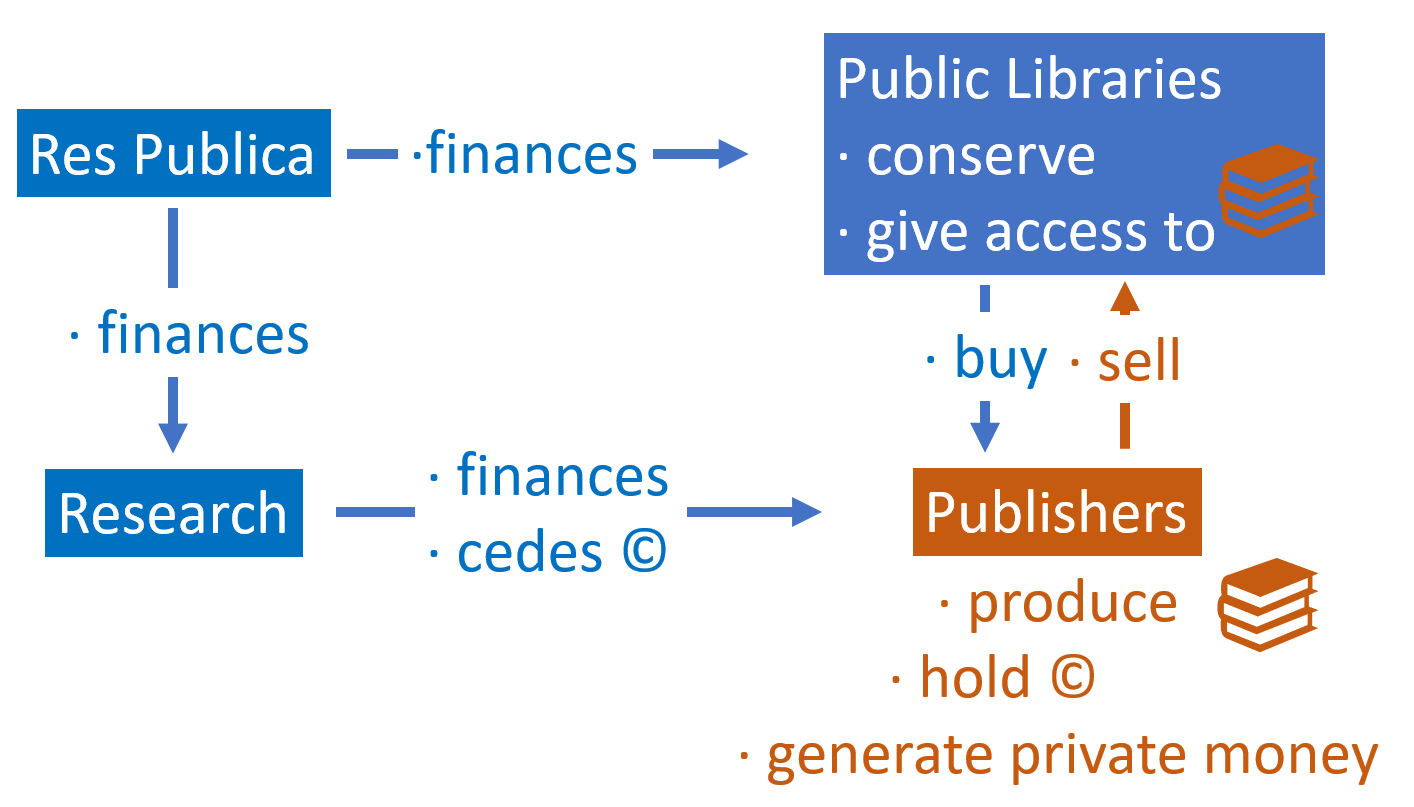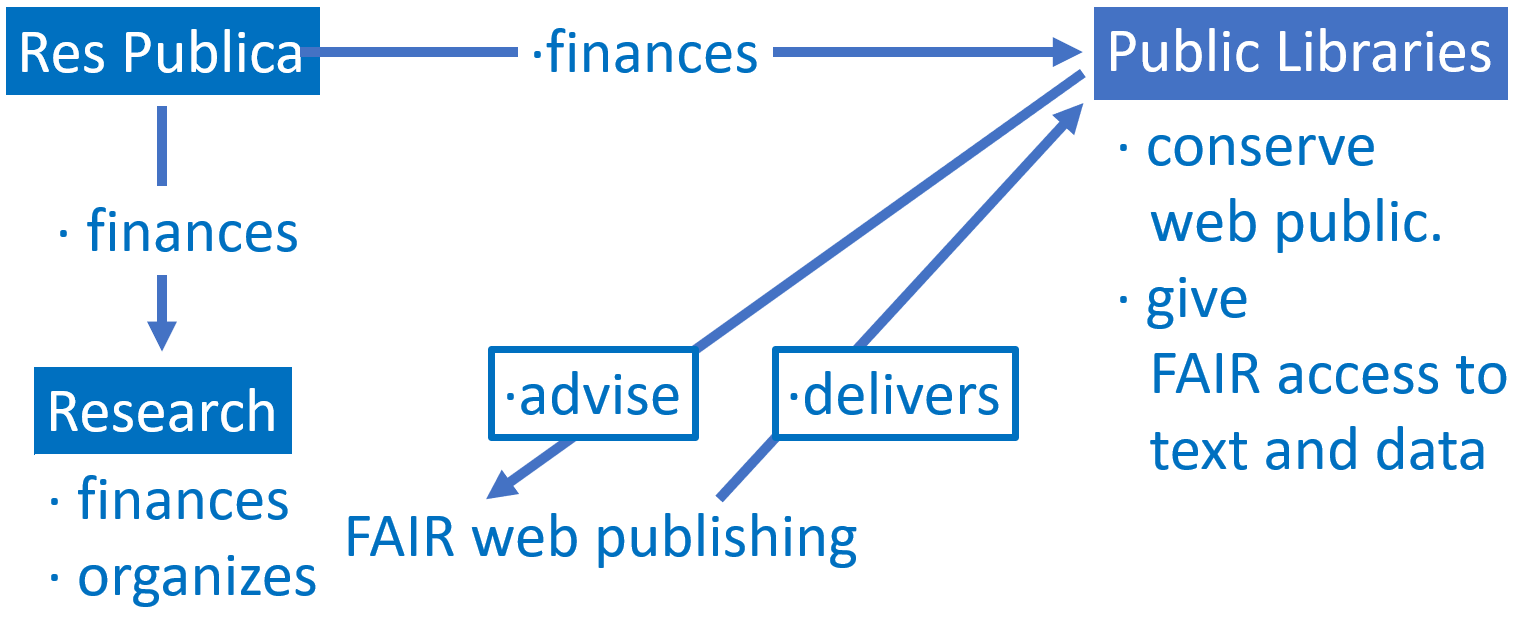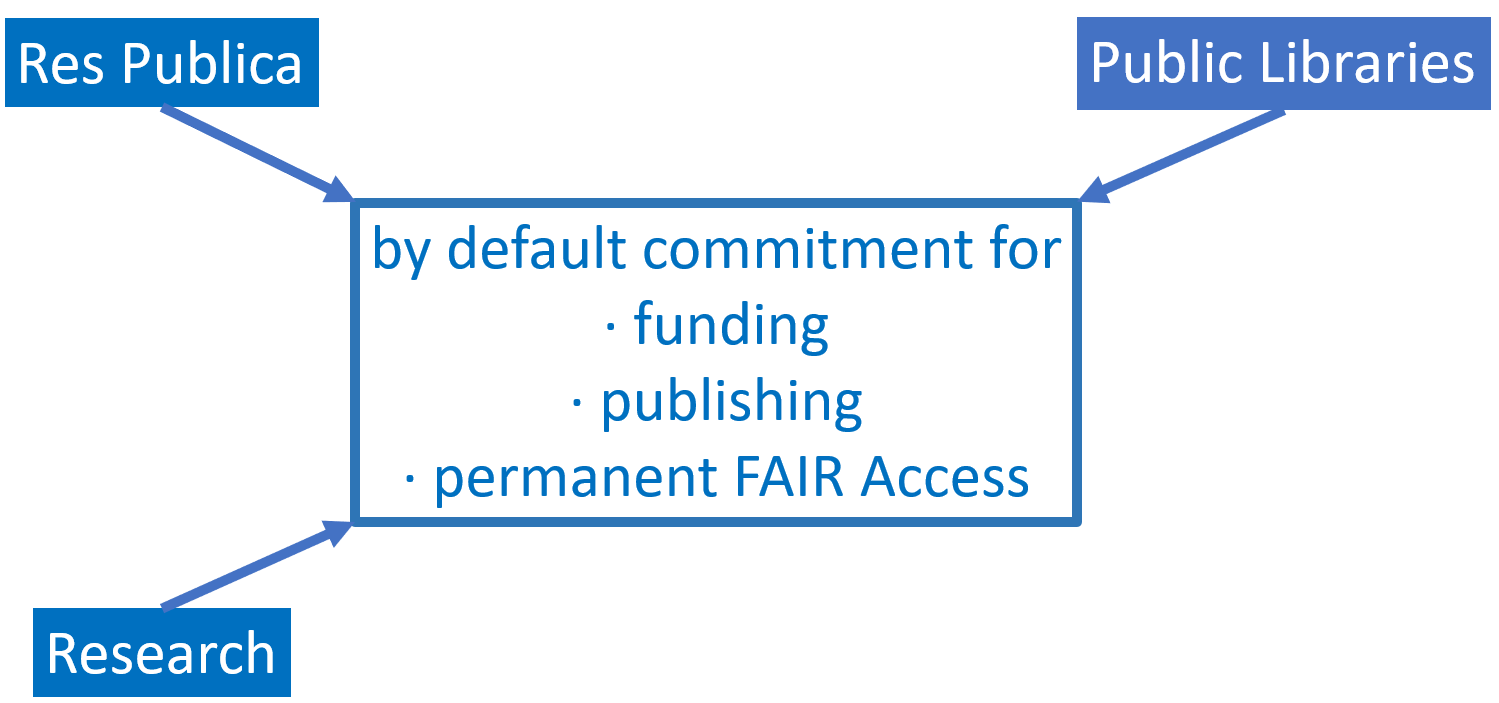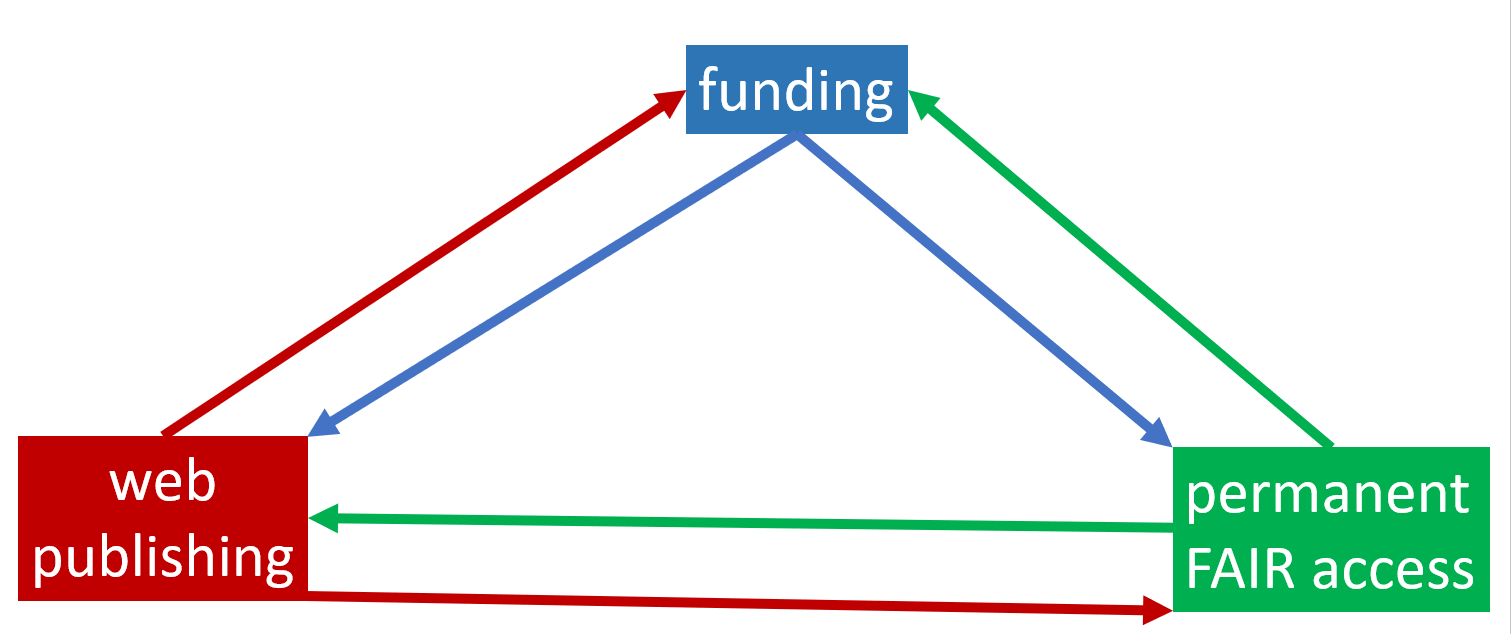«Les feuilles mortes se ramassent à la pelle»
(Jacques Prévert)
1. Preliminaries of Humanities
- academic research in public institutions (universities, Max-Planck-Gesellschaft, academies of sciences)
- largely financed by public funds (e.g. DFG)
- carried out in temporary projects (from birth to death)
- Verba Alpina = protypical example (funded by the DFG for 9 years)
| what remains are publications, but publishing has changed radically |
2. The legacy of VerbaAlpina
2.1. A "cosmos"
- 9 years of data collection, data analysis, reflection, documentation, programming
- legacy (almost) totally digital, no paper
- Physical amount:
- structured data in database (latest VA-DB-Version: 2,5 GB; 24 project DBs, including 16 version DBs ["VA_"], 37 partner DBs ["PVA_"]),
- 413 GB internal documents on fileserver (over 500.000 files!),
- 44,2 GB (another 145.069) files on webserver (including media files, e.g. fotos of concepts)
- What kind of data was created?
- language data collection,
- analytic texts/presentations
- development of manifold online tools (partially for internal use: Transcription tool, typecasting tool; external: crowdsourcing tool, online map, methodology, LexiconAlpinum ...)
- internal documents (e.g. protocols of weekly meetings, documenting project progress and explaining decisions --> important)
- Existence of numerous and manifold explicit and implicit connections between single elements of whole data stock ⇒ existence of whole "cosmos"
2.2. Issue stability
- "cosmos" ideally should remain stable in state at end of project
- Special case webportal: full functionality only in existing technical environment (File-, database- and webservers)
- In general: Webportal should (also) remain stable and accessible because of existing interlinkage from third party
- constant technical degrading process inevitable (updates of surrounding software frameworks require updating of VerbaAlpina code; external resources changed or vanished [e.g. recently: Stamen map tiles]; vanishing links)
- DOI no real solution as it still requires existence of functioning website
- container solutions (e.g. Docker) also *no* solution (mainly because of external dependencies, but also for security reasons)
- pace and severeness of degrading process not predictable (ITG will always try to provide quick fixes if resources available)
- For now, technical environment will be maintained and kept alive by ITG
- Measures taken at end of project in order to reduce effort:
- Partial deactivation of Crowdsourcing Tool and of
- social media accounts (Facebook, Twitter/X, Instagram)
- Creation of last VerbaAlpina version (23/2). System possibly put to read only mode
2.3. Measures taken
- Problem: Possible disappearence of institution responsible for hosting of data (= currently ITG - What happens if ITG vanishes?)
- Maintenance and keeping alive costs MONEY. Not provided by third party funding.
- Solution: transfer of responsibility to another institution - But: Which? Available resources for hosting and maintenance indispensable. Very important: TRUST mainly regarding stability/longevity!
- Options: Zenodo, Clariah-DE, NFDI? ... Hard to get overview, no compulsory rules, no standardized procedures
- Our choice (a very good one!): University library - BUT: Library can not fully substitute ITG (regarding hosting of current system)
- Therefore: Transfer of core data to repository at library ("UB Discover"). "Static" format that requires no or minimal maintenance (no "living" components, e.g. functioning online map)
- What are "core" data? Our choice:
- structured language data ⇒ University library
- semistrucured discursive elements (mainly articles in methodology and LexiconAlpinum; additionaly selected articles published on webserver) ⇒ University library
- Program code ⇒ github
- Additionally: detailed documentation and description of data, methods and processes as well as functionality of developped website/tools/code
- Hope: future developers will be able to rebuild and maybe further develop tools and/or features of VerbaAlpina web developments.
Overview over selected "items" and their respective persistence perspective:
| persistence perspective | |
|
|
|
|
|
|
| problematic: external links |
| total change of publishing: what is published is not automatically persistent anymore |
⇒ a schematic sketch of this change in chap. 2, 3 and a strategic proposition in chap. 4
3. Publishing of public research in Gutenberg Galaxy
- format of traditional publication: printed books, artikels
- publishers were needed for technical reasons (production, distribution)

| Research | publishing is not part of the scientific activity |
| Publishers | transform research results in private commercial goods (books) |
| Public Libraries | • few • give access to reading • no access to data reuse |
4. New horizon of publishing in www
- publishers are no longer needed ⇒ independence of research publishing from private business (see Krefeld 2023b)
- new formats of publication (platforms, not only results also work in progress)
- new licences (CC BY-SA instead of ©)
- new solutions for research data management (already working, see VerbaAlpina and LMU Library; cf. Kümmet u.a. 2018a, Krefeld 2022e)
-
- but: outcome of a special and longlasting collaboration, also in other projects (cf. fdm)
-

5. Purpose beyond VerbaAlpina: a mutual commitment by default

- a sort of an inheritance contract ensuring that the results of publicly funded research are available to the scientific community even after the death of the project
-
-
-
- languages - and dialects - belong to the intangible cultural heritage
- as well the research traditions in which they are documented (e.g. lexicography, dialect atlases)
-
-
-
| funding | web publishing | permenant FAIR access | |
| funding | x | x | |
| web publishing | x | x | |
| permanent FAIR access | x | x |
- funding = base of web publishing and permanent FAIR accessibility
- web publishing = condition of funding and permanent FAIR accessibility
- permanent FAIR accessibility = justification of funding and web publishing

6. A possible initiative...
... for all of us who agree with the outlined commitment
- the organisers will write an open letter to be sent to the national funding bodies and to the ERC
- signed by the participants of our meeting who agree (and forewarded to other collegues?)
Bibliography
- fdm = fdm: Forschungsdatenmanagement Bayern. eHumanities - interdisziplinär, LMU & FAU (Link).
- Krefeld 2022e = Krefeld, Thomas (2022): Wissenschaftskommunikation im Web, in: Methodologie, VerbaAlpina-de 23/1 (Link).
- Krefeld 2023b = Krefeld, Thomas (2023): ‘Publikation’ geht in Revision, in: Korpus im Text, Serie A, 104645, München, LMU (Link).
- Kümmet u.a. 2018a = Kümmet, Sonja / Lücke, Stephan / Schulz, Julian / Zacherl, Florian (2018): Forschungsdatenmanagement, in: Methodologie, VerbaAlpina-de 18/2 (Link).
- Lücke/Zacherl 2022 = Lücke, Stephan / Zacherl, Florian (2022): API, in: Methodologie, VerbaAlpina-de 23/1 (Link).
- Verba Alpina = Krefeld, Thomas / Lücke, Stephan (2014-): VerbaAlpina. Der alpine Kulturraum im Spiegel seiner Mehrsprachigkeit, München (Link).
